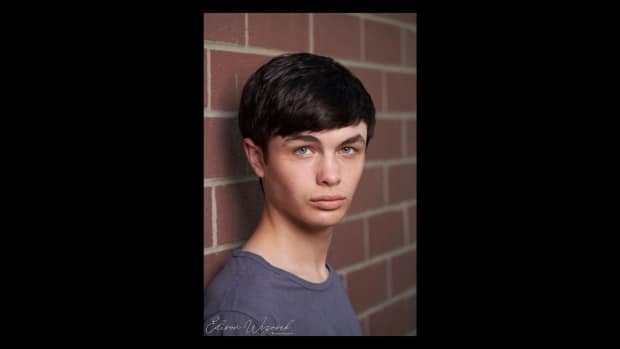Mother of teen star of The Flash calls for deeper probe into his overdose death

The mother of Coquitlam teen Logan Willians, who starred in the television series The Flash and died after ingesting fentanyl, says the system failed her son "over and over" again.
She's demanding an independent inquiry into her son's death and the events that led up to his drug use in a government-funded group home.
Logan Williams died on April 2, 2020, days before his 17th birthday. A month later, a toxicology report revealed that Williams died as a result of "acute drug toxicity" after ingesting fentanyl.
His death was ruled "accidental."
Williams, who started acting at 10, played the younger version of the DC Comics superhero Barry Allen in CW Network's The Flash. He also had roles in the science fiction series Supernatural and When Calls the Heart.
But by 16 he'd been struggling with drug use for years.
The B.C. Coroner's report says that Williams had been released from hospital with a brain injury from his drug use, when he used again. This time, he ingested fentanyl and died in a Burnaby, B.C., youth residence.
Marlyse Williams says her son was wrestling with trauma from his past and his drug use spiralled before he died.
She said that he'd hoped to turn things around and help others.
"Logan was a happy son, an energetic kid who loved music, acting and sports and then unfortunately he went down a path that he couldn't return from," said Williams.
Williams said that her son was taken into the care of B.C.'s Ministry of Children and Family Development (MCFD) for a short time.
He'd recently been discharged from hospital on Feb. 26, 2020, after a drug overdose that caused a brain injury and was staying in a group facility.
A coroner's report said that Logan was considered at high risk of serious injury or death.
On April 1, 2020, he left the residence where he was staying and was reported missing. He returned around 11 p.m. and appeared agitated and high, according to the coroner's report.
Staff said they conducted hourly checks of the teen who appeared to be sleeping, but when they attempted to wake him at 9:30 am on April 2, he was not breathing.
Paramedics did not attempt to resuscitate him as he was already dead. Drug paraphernalia was found near his body, according to the coroner's findings.
"He was supposed to have 24-hour supervision and that did not happen," said Williams who claims she has a house report to that effect.
Last Wednesday, Williams learned of the coroner's findings when a news reporter from the U.S called her. Due to an oversight, she had not been informed.
William's mother demanded but was denied an inquest into his death and wants a deeper probe.
She also said the public needs to move past "stigma" and realize drug use may at first be a choice, but after that, for some, the brain receptors rewire and it can become a serious medical affliction.
"The general public thinks it's a choice. It's a disease," she said.
She says its not accurate to deem death's like Logan's accidental. She believes such deaths are the same as a poisoning, because, in most cases, the drug user is not aware they are ingesting fentanyl.
MCFD is doing a review of the circumstances around Williams death but Williams says she's not comfortable with the ministry reviewing itself.
In the coroner's report, it says that Williams was offered residential treatment but "often declined to participate."
The B.C. Coroner's office has expressed its "sincerest condolences" to Logan Williams' loved ones for their tragic loss.
The office said in an email that an inquest is not "superior" to a coroner's investigation which can compel information and issue a public report, including recommendations to prevent future such deaths.
The case will also be reviewed by B.C.'s representative for children and youth.

